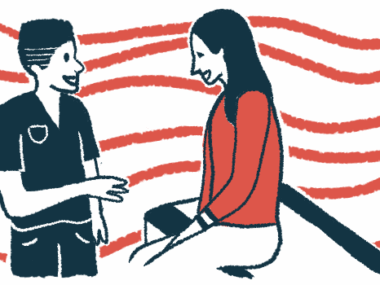Navigating the Unknowns of Travel and Accessibility
Written by |

Traveling with an invisible illness can be physically demanding and emotionally taxing. So much planning is involved, along with so much physical movement and running around. Being away from your normal element and comfort items can be a difficult transition as well.
Living away from my home state, where my family was, meant I did a lot of traveling. This was especially hard on my body while I was searching for the diagnosis that I would learn was Cushing’s disease. Even a short flight meant not only spending hours at the airport, but also packing and cleaning to prepare for a trip. It was exhausting on multiple levels.
After much trial and error, I found there was a way to balance all of the change and stress involved in traveling so that I could ease into it, despite any limitations and symptoms. Being well prepared has helped save me a lot of time, energy, and stress.
Asking for help
It was difficult for me to ask for help when traveling, as I felt a lot of shame and guilt. I was afraid of being judged by others for using services because my illness was invisible. I knew I needed the support of these services and that they were available regardless of how my illness may or may not appear to others. I learned that despite my fears, people were more than willing to assist me.
When traveling alone for a medical procedure, I was unable to lift my luggage and had to ask for support. I spoke with the airline staff preflight and once I boarded, as well as asking those sitting nearby if anyone was able to assist me physically.
Airlines and airports offer accommodations and different services to those in need, such as wheelchair assistance to the airline gate.
I would recommend trying to arrange this with the airline ahead of time to ensure availability. This is typically a free service where they will assist you once you enter the airport, through security, and to your gate. It has been crucial for me as I had to travel for multiple surgeries and couldn’t stand for more than a few minutes. Some airports are very large, which can be difficult to navigate with mobility issues and pain.
Organizing my tools
One of the main tools I use to help me handle long travel days is packing my comfort items. For me, this looks like disposable heating packs, comfortable and loose clothing, a reusable water bottle, prescription medications and over-the-counter items, snacks, and headphones.
I bring these items in my carry-on bag, which I keep with me at all times. I pack my as-needed medicines as well so that I feel fully prepared, especially in case I start flaring during the flight. Airplanes are not the most comfortable places, so having these tools helps me feel at ease and reduces tension.
Reducing fatigue and avoiding flares
I had to prioritize getting rest, even when I didn’t want to. Traveling is difficult on my body due to the multiple symptoms I experience, especially fatigue and pain. I feel drained once I land, even if I’m traveling for a vacation.
There have been many times when I have tried to just push through, and I crashed hard. I felt defeated. I second-guessed my decisions.
Having time allotted for rest and recovery from the physically taxing travel days is crucial to lowering the potential of a flare. I try to continue with my regular routine, such as my sleep schedule, when possible. I must listen to my body and what it needs.
I may have to forgo certain activities, especially those that may be physically draining, to enjoy the rest of my days. This allows me time to recuperate and have a less stressful trip.
Looping in the doctors
Having multiple chronic illnesses has meant that I have to plan a bit differently than others. I loop in my doctors so they are aware, and see if they have any recommendations. I have to think about my next steps and have multiple options in case I need to make changes because of my symptoms.
These tips have helped me make traveling a more enjoyable experience by using the resources available. Traveling is hard on the body, but these extra steps help me reduce the chance of a flare so I can make the most of my plans.
Do you travel with a chronic illness? What are some of your best tips? Please share in the comments below.
Note: Cushing’s Disease News is strictly a news and information website about the disease. It does not provide medical advice, diagnosis, or treatment. This content is not intended to be a substitute for professional medical advice, diagnosis, or treatment. Always seek the advice of your physician or other qualified health provider with any questions you may have regarding a medical condition. Never disregard professional medical advice or delay in seeking it because of something you have read on this website. The opinions expressed in this column are not those of Cushing’s Disease News or its parent company, Bionews, and are intended to spark discussion about issues pertaining to Cushing’s.






Richard Poulin
When we travel, we are very methodical in our planning and what needs to happen before we go on a "holiday". Holidays are supposed to be carefree and fun, but sometimes the effort we put into it seems like we should have stayed home. Over time, it is a much easier process and your tips are right on!